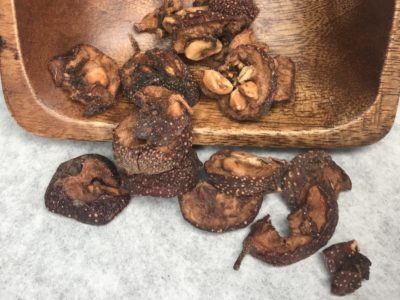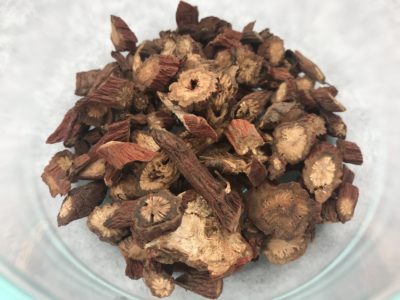
February is American Heart Month
It’s also the New Lunar Year which is celebrated on February 12, 2021 in many Asian countries. It’s the year of the Metal Ox according to the Chinese Zodiac. Like last year, 2021 is influenced by the metal element. Metal is related to the lungs and the respiratory system in Chinese medicine. Taking care of your health and protecting the lungs continues to be important for 2021. The Wei Qi, or Defense Qi is your body’s initial protection against pathogens that cause disease. Your body is more prepared to fight off illness if your Wei Qi is strong. In a previous post I talked about herbs we use in Chinese medicine to support healthy lungs.
The United States established American Heart Month in 1964 to bring more awareness to heart disease. According to the Centers for Disease Control and Prevention, heart disease continues to be a leading cause of death for men and women. The coronavirus pandemic has further impacted people’s heart health. Stay at home orders may have impacted people’s lifestyle habits because of limited physical activity and poor eating. Isolation, stress, and anxiety resulting from the coronavirus pandemic are also factors that can lead to heart disease. The impact of the coronavirus itself on the heart is now being observed by doctors. They have discovered potentially harmful effects of COVID-19 infection on the vascular system and are now studying its long-term effects.
The Heart In Chinese Medicine
The heart is regarded as the most important of the internal organs in Chinese medicine. The heart is considered the “emperor” or “ruler” of the other organs which include the liver, spleen, lungs, and kidneys.
The most important function of the heart in Chinese medicine is governing the blood and housing the shen (mind or spirit). It controls the blood vessels and the ability of the blood to move freely. If there is any blockage, it can lead to heart disease. The heart also has a special function in Chinese medicine because this is where our consciousness and spirit resides. An imbalance in the heart can affect the mental and emotional state. If the heart is weak and the blood deficient, it can lead to things like poor memory, unclear thinking, insomnia, and mental-emotional problems like depression and anxiety. Conversely, the imbalance in emotions can lead to imbalances in the heart organ itself and manifest as palpitations, a weak pulse, and health conditions.
The Heart and Uterus Connection
Acupuncture works by stimulating the different energetic pathways in the body called meridians or channels. The heart is connected to the uterus through the bao mai (uterus vessel). The heart controls the downward movement of blood. There must be a free flow of energy and blood through the bao mai for menstruation and conception to occur. The heart is especially vulnerable to emotional stress and anxiety. This can lead to the blockage of the bao mai. This is why women may experience more premenstrual symptoms or more painful periods when they experience emotional turmoil. The bao mai must be unobstructed and free for healthy menstruation and fertility to occur.
A healthy heart is important in forming bonds and relationships. It is said that a woman’s uterus is her second heart. Acupuncture, herbal medicine and lifestyle can help with ensuring a healthy flow in the body’s channels to promote improved health and functioning of the internal organs.
Chinese Herbs for the Heart
Herbs that are good for the heart in Chinese medicine can either have a physiological effect on the heart or affect the spirit or emotional aspect of the heart. Physiological functions of the heart include pumping blood more efficiently or supporting arterial health. Chinese medicine herbs that improve the spirit and emotional aspect of the heart are called shen calming herbs.
I will highlight two herbs that are often included in Chinese medicine formulas to benefit the heart: hawthorn fruit and salvia root.

Hawthorn Fruit – Shan Zha
When I was a kid, one of my favorite candies was called “Haw Flakes” that we’d buy at the Asian grocery store. They were packaged together in a small cylinder stack and inside were these red sweet candies shaped in a disc. My siblings and I would fight for the last one because it was so good to eat. It wasn’t until I was studying Chinese medicine that I realized that these candies were made out Chinese hawthorn fruit or shan zha.
Chinese hawthorn fruit is sour, sweet, and slightly warm and enters the channels of the liver, spleen and stomach. It helps with digestion especially of meat and greasy foods. It can help stop diarrhea and ease abdominal discomfort.
Hawthorn fruit supports cardiovascular health when used in combination with other herbs. It has been used to treat hypertension, coronary artery disorders, angina, and hypercholesterolemia. Studies have shown that shan zha increases the contractile force of the heart and has an influence on dilating the coronary artery. It helps decrease blood pressure and reduce plasma cholesterol levels in the laboratory [2].
Hawthorn fruit can be added to dishes like soups and stews. It also makes a sweet tasting tea to aid in digestion.

Salvia Root – Dan Shen
Salvia root, also called red-root sage and red ginseng, is a common herb used by Chinese herbalists to help move the blood and get rid of any blockage in different parts of the body. Dan shen works on both physiological function of the heart and the spirit aspect of the heart.
Salvia root is bitter and slightly cold. It enters the heart, pericardium, and the liver. It’s a very important herb in treating women’s conditions such as irregular menstruation or amenorrhea, cysts and fibroids, and postpartum conditions. Salvia root helps nourish the blood and calms the spirit. It helps soothe the heart and emotions.
Salvia root is one of the most important herbs to treat cardiovascular conditions such as cardiac ischemia and angina [2]. Salvia root dilates and increases blood flow to coronary arteries and the vital organs of the body including the brain, heart and the kidneys [Ibid]. It also benefits the liver by increasing microcirculation and cellular regeneration to help prevent fibrosis [3].
The art of making Chinese herbal formulas is about putting together the right combination of herbs to produce a desired result. I use these two herbs, shan zha and dan shen, in different combinations with other herbs to support heart health, digestive health, as well as women’s conditions to improve health and wellbeing.
Sources:
- Bensky, Dan, et al. (2004). Chinese Herbal Medicine Materia Medica, 3rd Edition.
- Chen and Chen. (2001). Chinese Medical Herbology and Pharmacology.
- Holmes, Peter. (1996). Jade Remedies, Vol.1.
Work with me
If you’d like individualized advice on how acupuncture and Chinese medicine can work for you, I’m here to support you!
